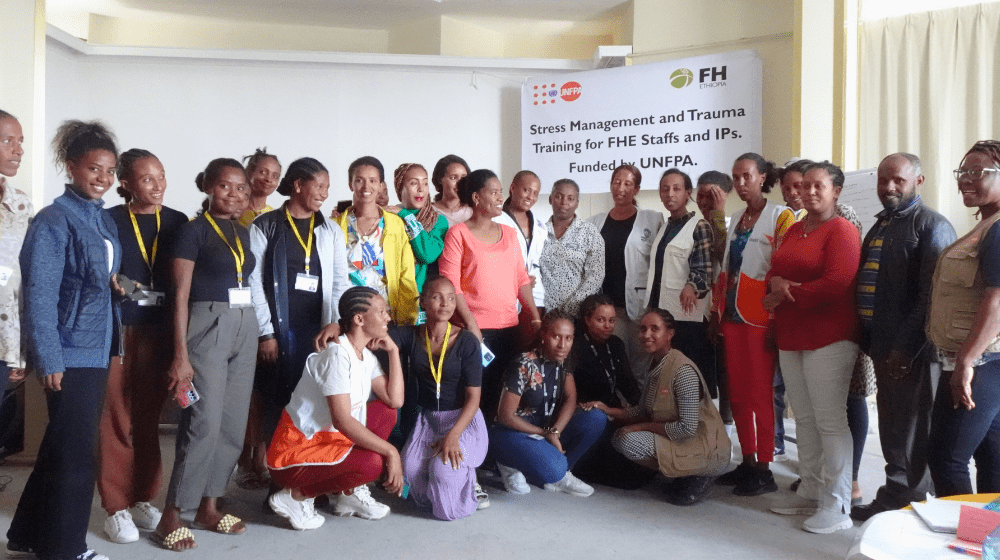Mekelle, Ethiopia - On Monday, the United Nations Population Fund Agency (UNFPA) kicked off a 3-day stress management and trauma healing training for frontline GBV service providers and partner organizations in Tigray’s regional capital, Mekelle.
The training brought together 33 healthcare providers, case workers, and staff to develop their skills in stress resilience, stress management, trauma-informed care, and staff wellbeing. The training was conducted with the financial support of the World Bank through the Ministry of Women and Social Affairs and UNOPS, Canada, Italy, and technical support from UNFPA.
Head of UNFPA’s Sub office in Mekelle, Joyce Paklaki says training such as this is invaluable for frontline workers who often, as a result of their professional responsibilities suffer from burnout, “by investing in the well-being of these care workers, UNFPA hopes to enhance the skills of frontline workers, recognize and sensitively respond to the effects of trauma, reduce burnout and contribute towards a more resilient system and recovery of the region, so those in need can receive adequate care.
The training aims to equip the GBV frontline workers with the necessary skills and tools to cope with the challenges they face as they continue to provide services to traumatized survivors of armed conflict in the Tigray region. “ These workers are overwhelmed by accumulated stress, from listening to horrific stories during case management. Nurses and doctors at one-stop centers respond to critical cases of rape, they need psychological debriefing and self-care to better manage the trauma that comes with the nature of their professional services in responding to emergencies and effects of violence long after the guns have gone silent,” says Gorrety Ajwang, Mental Health and Psychosocial Support (MHPSS) Specialist at UNFPA.
Ajwang routinely reminds health workers “You need someone to talk to, someone to confide in and take self-care seriously- in Psychology, you need your ME TIME.”
Years of conflict have left many in Tigray in dire need of mental health support. This has led to heightened pressure and emotional strain on frontline workers as they work to cope with the needs of so many.
Rozina Zebrabruk, a case worker at Food for the Hungry says the challenges frontline workers face are multifaceted, “It’s difficult to provide comprehensive care for your patients, we don’t have sufficient medications, and the referral pathways may not always work, but frontline workers remain as dedicated as ever to serving their patients.” says Rozina, “but that doesn’t mean we are not impacted by the pressures that come with providing these services. “
For Rozina, the opportunity to reflect on her own mental health itself has been a meaningful experience “It helped me define my experience, to find the words for it, and also the need to be attentive to my colleagues, and their needs. We need to be there for one another too.”
The training includes a component on stress management techniques, trauma, and trauma-informed care, and aims to boost the ability of frontline workers to care for themselves, as well as, their patients.


